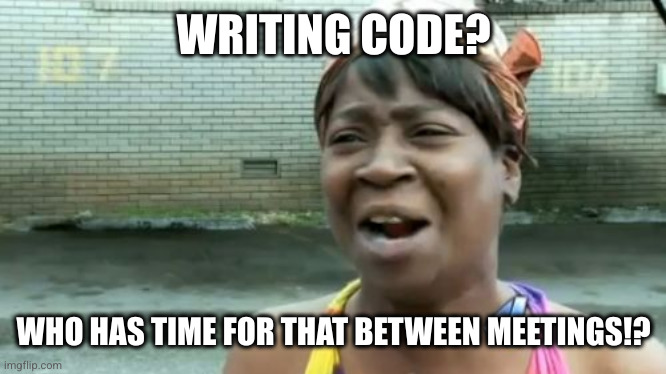I mean, you're not hired to "code", you're hired to do software engineering. That usually means working with other people. Reviewing code is a win win situation because both get a second pair of eyes on their code and prevent each other from committing dumb shit that you might have to fix later.
I feel like these memes of hating everything other than lone coding is because you keep working for toxic companies. Ffs you're programmers, it's probably super easy to get another job. It doesn't have to be like this.


